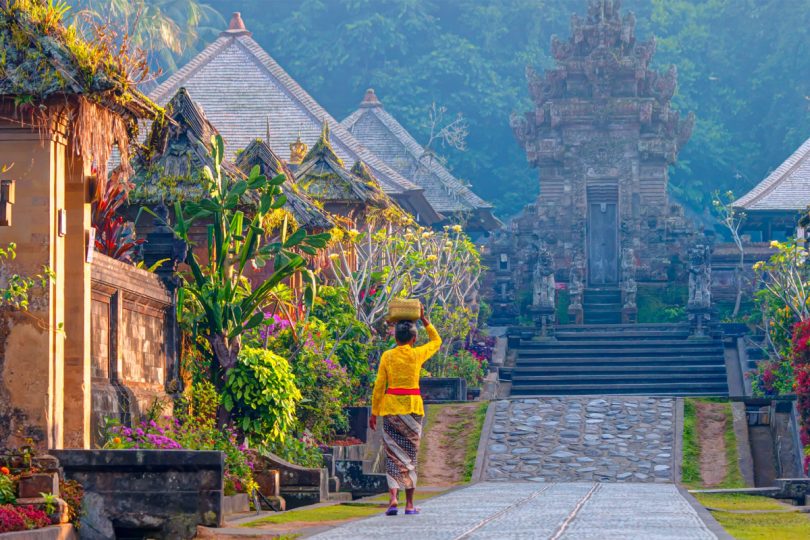Indonesia is set to develop and promote rural tourism in its villages, aiming to attract tourists to experience nature, authentic cultures and local life of the Indonesian people.
Villages in Indonesia have been rated among the most attractive local areas in the world, set to welcome tourists, offering experiences that combine nature, authentic cultures and local life.
Indonesian village tourism is offering open nature spaces, attracting many people who are flocking to the villages and mingle with locals to enjoy the rural life.
Village tourism involves small and simple destinations, but is having a huge impact on Indonesia’s tourism sector and supporting local enterprises through Small and Medium Scale (SME) tourism projects.
Rural tourism has shown significant growth in recent decades and has been recognized as an essential means of economic development in rural areas.
Dr. Nunung Rusmiati, President of the Association of the Indonesian Tours and Travel Agencies (ASITA) said that more than four million tourists flocked to the many islands of Indonesia to experience the culture, bask in nature, and have some well-needed rest and relaxation in 2020.
She said during a recent Webinar session that Indonesia is a “Sleeping giant of Rural Tourism” which has more than enough great opportunities for success in the tourism business.
Professor Igde Pitana said that Indonesia is rich in natural, cultural and man-made attractions which needed integrated development that would connect villages to share rural attractions.
Dr. Gusti Kade Sutawa, President of Nawa Cita Pariwisata Indonesia talked about the need for sustainable tourism development in Indonesia that would focus at
Cultural Tourism and Arts, Archaeological sites, Architecture, Music and Entertainments.
Other key targets included the recruiting of international experts to offer their experience in tourism management, promotion of agriculture-based tourism, rivers and seas tourism and development of Cultural Tourism as a beacon for Indonesia’s future tourism.
Rural tourism is an embodiment of community-based tourism, which is believed to counter the negative impacts of mass tourism related to social equality, environmental degradation, and saving the community’s culture.
The tourism experts had viewed domestic, cultural and rural tourism as key priority for the integrated development of Indonesian tourism.
Rural tourism has been recognized both directly and indirectly as a catalyst for development in rural areas and is capable of becoming a strategic lever in revitalizing the economy of rural regions and of supporting the alleviation of poverty, they said through different research documents.
Rural tourism has encouraged the development of rural development and raising incomes in multiple countries then bringing about positive social and economic benefits to people living in villages.
It acts as a vector of sustainable development capable of generating employment and income, combating rural exodus and facilitating socio-economic networking.
Village based and rural tourism in Indonesia have been rated as drivers of vehicles for processing and enhancing cultural and natural heritage targeting to improve the quality of life for local residents.
China is rated a good example where rural tourism became the main driving force for the fight against poverty.
The experts and speakers of the past Webinar session with a theme of “Indonesia the Untapped Destination, Discover the Undiscovered”, viewed domestic, cultural and rural tourism as key priority for the integrated development of Indonesian tourism.
They rated Indonesia as a country with the Fourth (4th) largest population after China, India and the United States.
Borrowing a leaf from Indonesia, African countries could develop then market Rural and Domestic tourism into new products that would their tourism portfolio and incomes of the continent’s population.
Endowed with rich natural resources, cultural and historical heritages, Africa remains the least developed continent in the world with lowest tourist incomes compared to other continents.
Targeting development of diversified tourist attractions in Africa, the African Tourism Board (ATB) is currently working to spread the attraction of the continent’s tourism in the world.
African Tourism Board is a pan-African tourism organization with a mandate for marketing and promoting all the 54 Destinations, thereby changing the narratives.
(eTN): African Rural Tourism: Learning from Indonesia | re-post license | post content























